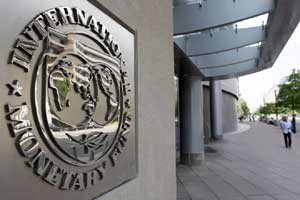The US has acknowledged that the creation of new multilateral financial institutions like BRICS bank is a result of the failure of reform of the International Monetary Fund (IMF), where emerging economies like India, China and Brazil have negligible voice.
Because of the veto power of the US, the reforms of the IMF decided way back in 2010 to reflect the growing importance of major emerging markets in the global economy have not taken place, Nathan Sheets, the Under Secretary of Treasury for International Affairs, said.
In 2010 IMF had agreed on a set of quota and governance reforms giving more voice and say in the decision making process to countries like China, India and Brazil. But this has not been realised so far as the US Congress has not approved it.
“These reforms are designed to strengthen the finances of the IMF and give a greater voice to dynamic emerging markets, such as Brazil, China, India and Mexico, while preserving the US veto by a comfortable margin,” Sheets said during a Congressional hearing.
“As the largest shareholder and the only member with veto power over major IMF decisions, our extended delay in approving the 2010 IMF quota and governance reforms has led our partners to question our commitment to the multilateral system,” he said.
“Some countries have pursued their interests in other ways, including by creating new institutions in which the United States has no voice, such as the New Development Bank (known as the BRICS bank) and the Asian Infrastructure Investment Bank (AIIB),” Sheets said.
In June, during a US visit Union Finance Minister Arun Jaitley had attributed the emergence of new multilateral financial institutions to the failure of reforms in IMF and the World Bank.
“We do believe that these new institutions… this bank or the BRICS bank… these institutions are all coming up… the analysis in India has been the reforms within World Bank and the IMF has prolonged a bit too long. As a result of which these alternative institutions are coming up,” Jaitley had said in his appearance at the Stanford University in California.
Testifying before a Congressional committee, Sheets argued that to ensure that the IMF remains at the centre of the multilateral economic system and that America maintain an important voice in it the US should promptly approve the 2010 quota and governance reforms.
“Our interest in strengthening the Fund is not based on esoteric notions of global leadership or nostalgia for institutions that the US created. Rather, we have learned from hard-won experience that a well-resourced and effective IMF is indispensable to achieving our economic and national security interests,” he said.
“By stemming crises in other countries and preventing them from spreading around the globe, the IMF protects US jobs and exports. The IMF’s policy advice and financial support also foster countries’ economic growth, thereby helping boost global demand,” Sheets said.
The proposed reforms of the IMF’s quota and governance will put its finances on more stable footing by doubling the size of quotas and reducing the Fund’s reliance on borrowed resources through a reduction in the New Arrangements to Borrow (NAB), he asserted.
Quotas are the IMF’s core resources that reflect the shares each country holds in the institution. Quota shares are directly related to voting shares and hence the voice of each member in the IMF, he said.
“Increasing our quota under the proposed reforms will not raise the current US financial commitment to the IMF. The US quota increase will be matched by an equal reduction in the US financial participation in the NAB. But, the shift to quota resources signifies a stronger commitment to the core resources of the institution and will allow the IMF to reallocate voting shares and modernise its governance structure,” he said.
“From a financial perspective, our investment in the IMF is exceptionally sound. US claims on the IMF are of the highest quality they are protected by the IMF’s rock-solid balance sheet, with substantial reserves and unrealised gold profits that exceed total IMF credit outstanding,” he added.


